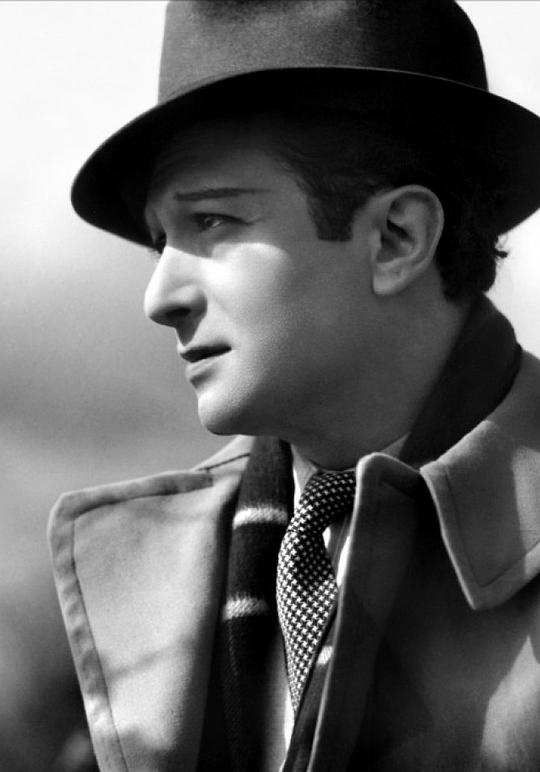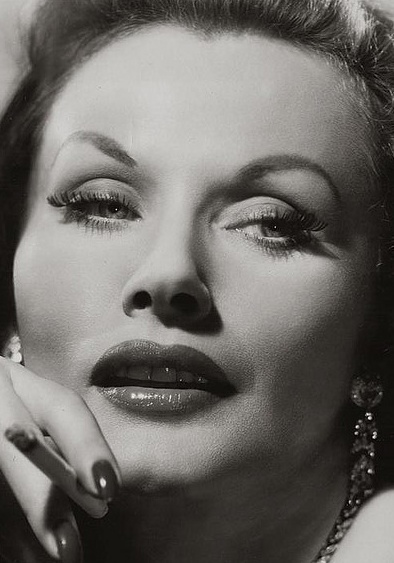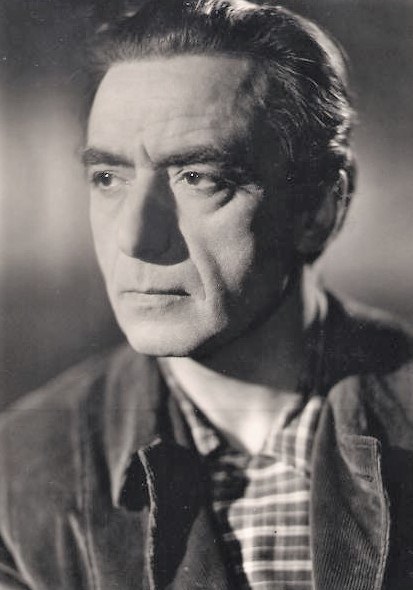海牙 Les maudits(1947)
简介:
- 1945年,刚被同盟国释放的法国医生Guilbert在Royan被纳粹逮捕。他们把他带到一艘意图前往南美洲的潜水艇上。船上有一个盖世太保的头目,一位德国将军,一个意大利商人和他妻子,几个逃亡者,其中一位亲德的法国记者(Couturier饰)。于是多方利益交织冲突就在这艘逃亡的潜艇上发生了。
演员:
影评:
没有人写吗?我来写。
一个法国乡村医生,深夜看完病回家。妻子正在哄孩子睡觉,一个男人和他说,“我和我妻子出了车祸,她陷入昏迷,我不敢动她,您能不能帮我去看一下。”医生想了想说,好吧。然后他随着男人出门就被另外两个面露凶相的人劫持了,起初他以为是黑社会或罪犯受伤,但这3个人带着他来到海边,上了一艘“船”。当他还没搞清楚这船怎么没有桅杆的时候,他先看到了船里面的人都穿着军服,然后听到他们都讲德语,然后发现墙壁上的纳粹标志,然后是枪架上的毛瑟步枪。
此刻他的心里是,“oh,fuck fuck fuck. I am fucked. I'll be damned.” 然而电影没有把这些台词写在剧本里,而是用一个长镜头呈现出来,顺便告诉我们中国当代投资人,什么是电影。(因为中国投资人看剧本是无法用想象力来补齐这些的。必须把这些场景描述和人物内心写在里面。)
这个开场极其令人振奋,和平年代被一伙逃亡(片中叫执行秘密计划)的纳粹绑架到一艘U型潜艇上?还有比这更燃的故事吗?他如何逃生,如何不被这些纳粹用后即抛?我就等着看这些呢。结果,电影并没有讲太多这个故事,而是转到了如何描写“帝国的毁灭”上。小姐姐嫁给一个意大利人同时又是将军的情妇,意大利人火线入党结果正好赶上珍珠港美国参战,真是肠子都悔青了。他得知元首自杀的消息以后,得知无法挽回爱情,就跳船自杀。他刻意毁掉自身的一切,没有留下任何一点东西给小姐姐,表达了他的人生彻底的失败。小姐姐随后就要搬去和将军同居,连将军都受不了这种直白。于是小姐姐就将媚眼抛向铁杆纳粹,希姆莱先生的红人身边的小男生身上——由此展开了法国导演的几个万年梗:
1、变态纳粹老先生和他膝下懵懂的漂亮小男孩。小男孩犯错的时候,老先生还要拿起皮带说,“你看看你都逼我做了什么?”
2、17岁的金发少女和已婚医生的暧昧。医生被绑架之后,立刻就碰到了北欧父女俩。父亲不管女儿独自逃命,留下美丽的金发少女对中年医生不可抑制的好感。法国导演对金发少女穿连衣裙露出白玉的腿和裸脚的万年挚爱。
3、女人具有无法控制的对爱情渴望,不是在爱情中受苦,就是在爱情中毁灭。
总之,基本上,整部电影从惊悚生存变成了《乌鸦与麻雀》一样的剧情片。但从导演后来的电影可以看出,导演在之后意识到了惊悚生存的意义,为后来的电影打下了基础。本片有完美的开始和诸多方向的尝试,可以作为理解导演成长的参考。但过多的描写人物自身的最恶性为政治正确服务,就没有时间展现故事和紧张感。怎么说呢,就是学术上可以看看,但他的方法在当今中国不具有实用性,因为制片人不会允许这种蒙太奇,他们会说“这是欺骗观众”,也看不懂剧本。所以,除非你是学习电影学的人,从业人员来说并不推荐,看多了心里难过。

Canne’s entry in 1947, René Clément’s earlier post-war thriller THE DAMNED boasts a handsome production grandeur of its waterborne set and the verisimilitude inside a real submarine (famously for his stupendous long-take tracking shot within a pokey space), the story is told from the recollections of a young French doctor Guilbert (Vidal) hailed from the newly-liberated port town Royan, who is press-ganged at gunpoint to enter a submarine to tend to an injured woman, which is occupied by a covey of Nazi officers, soldiers and sympathizers, escaping from Oslo to South America, fantasizing to branch out a new territory when the Third Reich is in it last gasp, and the year is 1945.
The titular bunch of “the damned”, is chiefly constituted by the SS officer Forster (Jo Dest, over-eggs his abominable image here), his young sidekick Willy Morus (a glisteningly treacherous Auclair), an Italian industrialist Garosi (Giachetti, a genteel soft touch boards on the wrong voyage) and his German wife Hilde (Marly, glacial and forcibly self-destructive), the aforementioned injured, who has fallen out of love with her hubby and become the paramour of the German army general Von Hauser (a stiff Kronefeld, strangely uncredited), also presented is French journalist Couturier (Bernard, very smooth as a gregarious opportunist), a young Nordic girl Ingrid Ericksen (Campion) and her scholar father (Hector).
Clément and his co-writers carves out a lean but gripping story-line, and makes the most of the claustrophobic space to tease out the bunch’s internecine tension. Right from the off, the power play between Forster and Von Hauser is shown in their exchange about “deadweight”, and Clément gives no quarter in turning the screws on the heinous nature of the Nazi party - especially embodied by Forster’s character, who is obstinate enough to not admit that their days are numbered, and habitually turns murderous at the drop of a hat - to the extreme of instantaneously biting the hand that feeds them in the dastardly climax which grossly provokes s a belatedly mutiny.
Things do not end well for foreigners too, Garosi and Couturier take their polarized plunges as their abandon ship strategies, but their denouement is much of a muchness, so is the German’s South American contact Larga (Dalio, first billed, but only appear for 15 minutes or so), terra firma cannot save him from falling victim to radicals and paranoiacs.
As our protagonist, against our preconception, a weary and leery Guillbert is not cut out to be a hero living among wolves, all his moves are stemmed from pure self-preservation, barely he does anything to accelerate their undoing (in fact, their disintegration begins to tell as soon as those stray curs are corralled together, there is no need for an extrinsic force to set them against each other), and Clément enriches his character with profuse inner asides, an innovative touch of its time, and sits well along the slippery slope that vents his own vehement condemnation.
referential entry: Clément’s FORBIDDEN GAMES (1952, 8.7/10); Jacques Becker’s ANTOINE AND ANTOINETTE (1947, 7.5/10).






